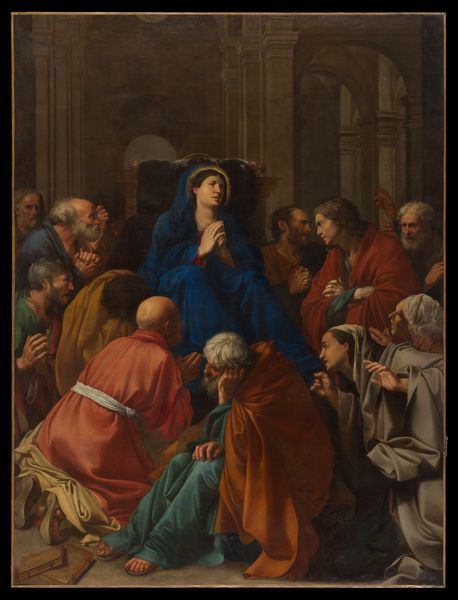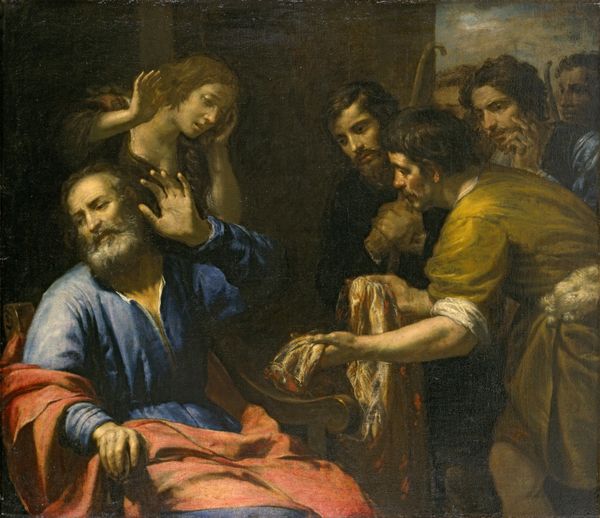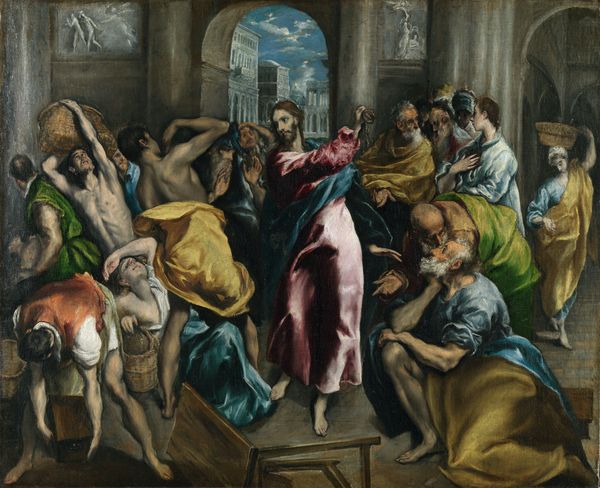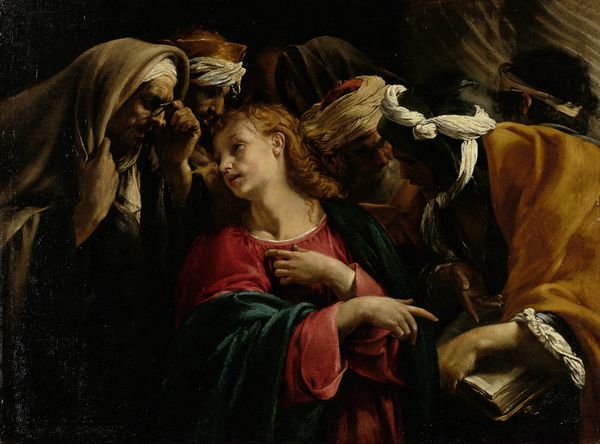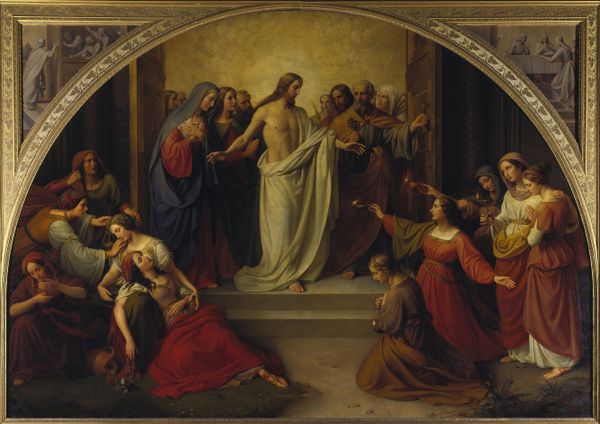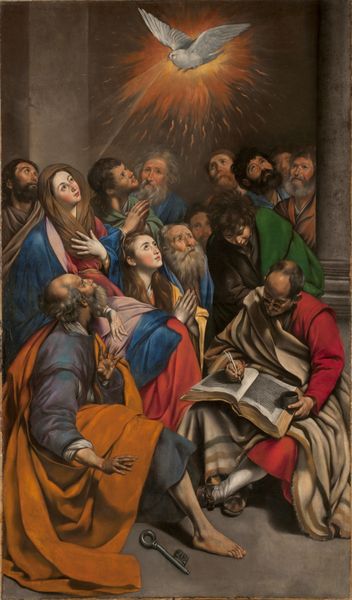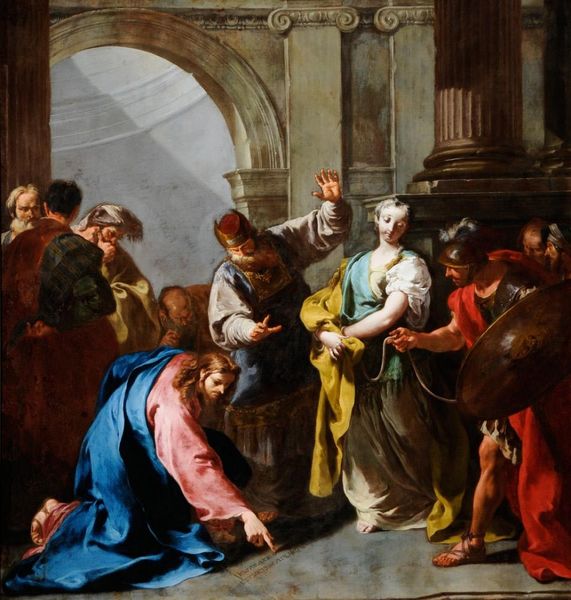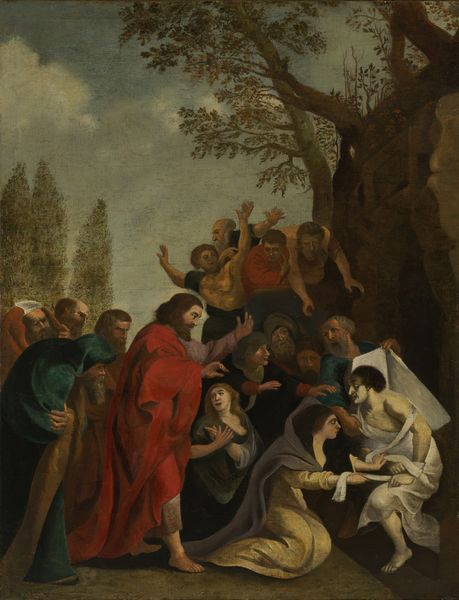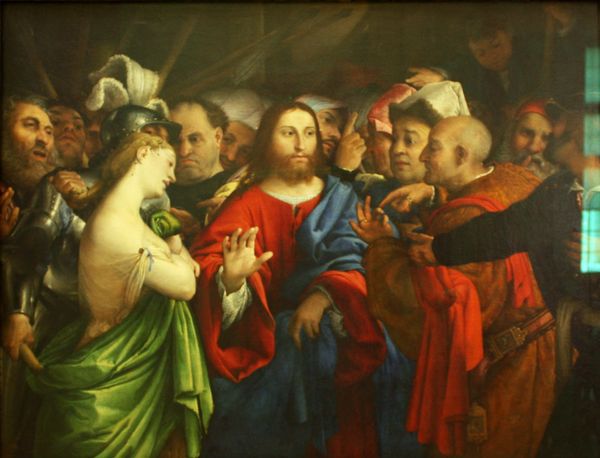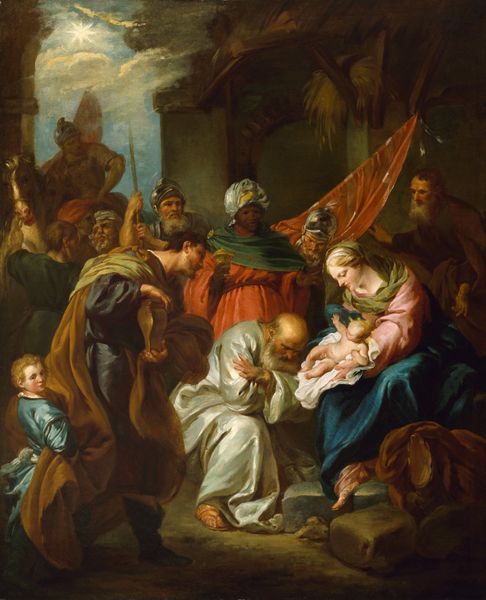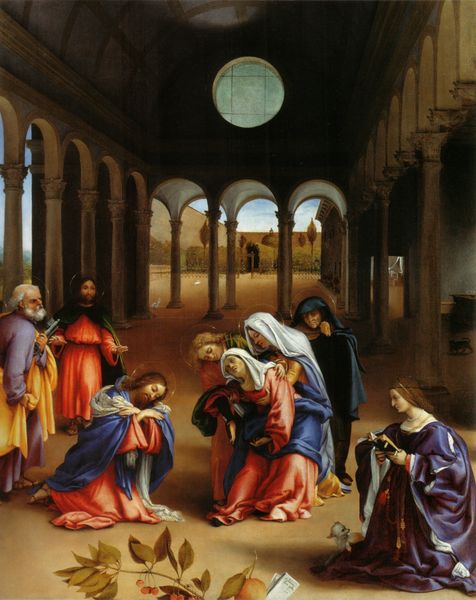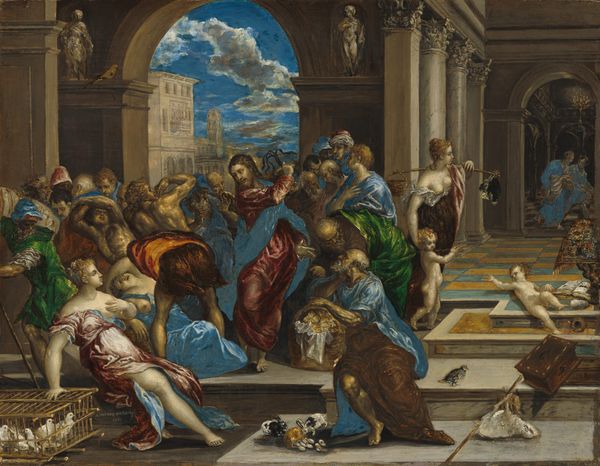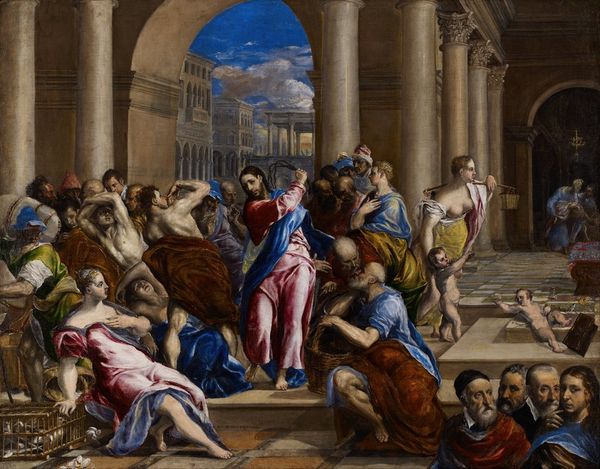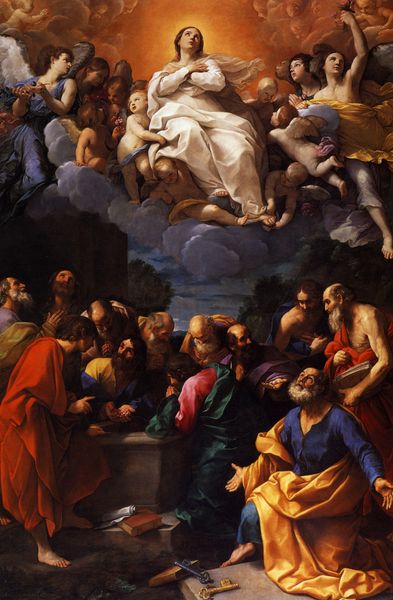
painting, oil-paint
#
allegory
#
baroque
#
painting
#
oil-paint
#
figuration
#
oil painting
#
history-painting
#
italian-renaissance
Dimensions: 14 7/16 x 11 5/16 in. (36.67 x 28.73 cm) (sight)21 1/8 x 18 1/2 in. (53.66 x 46.99 cm) (outer frame)
Copyright: Public Domain
Editor: Here we have Carlo Saraceni’s "Death of the Virgin," an oil painting from the 16th or 17th century. It's a rather moving scene, but the composition seems so... staged. What do you see in this piece from a formal perspective? Curator: Observe how Saraceni orchestrates the composition around the horizontal axis of the Virgin. The use of chiaroscuro, with dramatic contrasts of light and shadow, sculpts the figures and intensifies the emotional atmosphere. Consider, too, the architecture—the arched openings suggesting an infinite space versus the finite nature of death itself. How does this spatial tension influence your reading of the image? Editor: I see what you mean. The architecture adds depth, like a stage, yet it’s still very contained. It emphasizes the figures. What about the arrangement of the figures? Curator: The apostles' arrangement around the Virgin creates a circular, almost claustrophobic feeling, further enhanced by the artist’s tight cropping. It visually emphasizes both her isolation in death and her central role as the focal point of grief. Are the apostle's gestures random, or is Saraceni perhaps building a narrative using semiotics? Editor: Good question! It looks like there's definitely a pattern with people reaching towards her. What is fascinating is how different each figure is represented by Saraceni. He is trying to capture emotions on a personal level, don't you agree? Curator: Indeed. Saraceni masterfully manipulated light and compositional structure to convey both drama and devotion in the Baroque style. By attending to these formal properties, we gain richer access into the work's meaning. Editor: This piece holds much more significance through analyzing the painting techniques. Curator: Precisely!
Comments
No comments
Be the first to comment and join the conversation on the ultimate creative platform.
